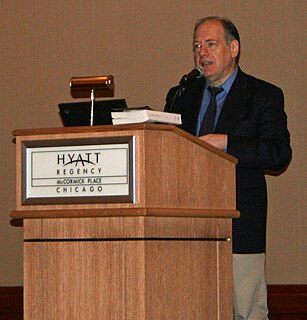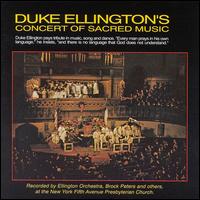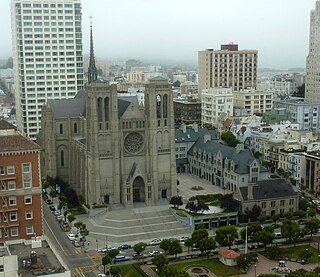
Ella at Duke's Place is a 1965 studio album by Ella Fitzgerald, accompanied by the Duke Ellington Orchestra. While it was the second studio album made by Fitzgerald and Ellington, following the 1957 Song book recording, a live double album Ella and Duke at the Cote D'Azur was recorded in 1967.
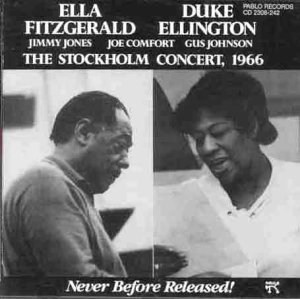
The Stockholm Concert, 1966 is a 1966 live album by the American jazz singer Ella Fitzgerald, accompanied in part by the Duke Ellington Orchestra. The recording remained unreleased until 1984.

...And His Mother Called Him Bill is a studio album by Duke Ellington recorded in the wake of the 1967 death of his long-time collaborator, Billy Strayhorn. It won the Grammy Award for Best Large Jazz Ensemble Album in 1969.
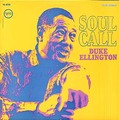
Soul Call is a 1967 live album by Duke Ellington and his orchestra, recorded live at the Juan-les-Pins/Antibes Jazz Festival on the Côte d'Azur. Ella Fitzgerald appeared with Ellington and his band at the same festival, and a more complete version of Ellington's appearance at the festival is documented on the 1998 album Ella and Duke at the Cote D'Azur.
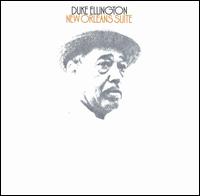
New Orleans Suite is the eighth studio album by American pianist, composer, and bandleader Duke Ellington recorded and released on the Atlantic label in 1970. The album features the final recordings of longtime Ellington saxophonist Johnny Hodges, who died between the album's two recording sessions. The album won a Grammy Award in 1971 for Best Jazz Performance by a Big Band.

Togo Brava Suite is an album by American pianist, composer, and bandleader Duke Ellington. It was recorded in England and released by United Artists Records in 1971. The album won a Grammy Award for Best Jazz Performance by a Big Band in 1972. The album was later reissued on CD by Blue Note in 1994, and studio recordings of the complete "Togo Brava Suite" were released in 2001 by Storyville.

The Popular Duke Ellington is a studio album by American pianist, composer and bandleader Duke Ellington featuring many of the tunes associated with his orchestra rerecorded in 1966 and released on the RCA label in 1967.

Concert in the Virgin Islands is an album by American pianist, composer and bandleader Duke Ellington recorded and released on the Reprise label in 1965. The album features studio recordings that Duke composed after he and his orchestra played concerts on St. Croix and St. Thomas in the Virgin Islands in April, 1965. This album includes the four-part Virgin Islands Suite, as well as numbers played at the concerts on the islands.

Duke Ellington Plays Mary Poppins is an album by American pianist, composer and bandleader Duke Ellington recorded in 1964 and released on the Reprise label in 1965. The album features recordings of tunes from the 1964 musical film Mary Poppins arranged by Ellington and Billy Strayhorn.

Ellington '65 is an album by American pianist, composer and bandleader Duke Ellington recorded in 1964 and released on the Reprise label in 1965. The album features recordings of popular tunes arranged by Ellington and Billy Strayhorn, a formula that was revisited on Ellington '66 (1966).

The Symphonic Ellington is an album by American pianist, composer and bandleader Duke Ellington recorded and released on the Reprise label in 1963. The album features recordings of Ellington's orchestra with the Paris Symphony Orchestra, the Stockholm Symphony Orchestra, the Hamburg Symphony Orchestra, and the La Scala Symphony Orchestra.

Afro-Bossa is an album by American pianist, composer and bandleader Duke Ellington recorded and released on the Reprise label in 1963.
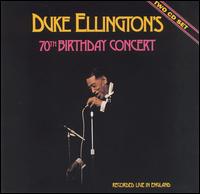
70th Birthday Concert is a live album by American pianist, composer and bandleader Duke Ellington recorded in England recorded at the Free Trade Hall in Manchester, England and originally released on the Solid State label in 1970. The album was later reissued on CD on the Blue Note label in 1995.

Latin American Suite is a studio album by American pianist, composer and bandleader Duke Ellington mainly recorded in 1968, with one track completed in 1970, and released on the Fantasy label in 1972.
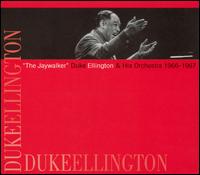
The Jaywalker is a studio album by American pianist, composer and bandleader Duke Ellington featuring tracks recorded in 1966 and 1967 and released on the Storyville label in 2004.
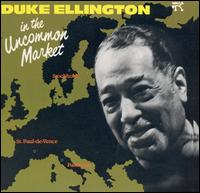
In the Uncommon Market is a live album by American pianist, composer and bandleader Duke Ellington recorded in Europe in 1963 and 1966 and released on the Pablo label in 1986.
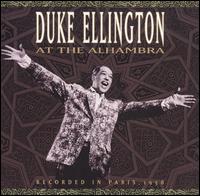
Duke Ellington at the Alhambra is a live album by American pianist, composer and bandleader Duke Ellington recorded in 1958 at the Alhambra Theater, Paris and released on the Pablo label in 2002.

Studio Sessions, New York 1962 is the third volume of The Private Collection a series of recordings made by American pianist, composer and bandleader Duke Ellington for his personal collection which was first released on the LMR label in 1987 and later on the Saja label.
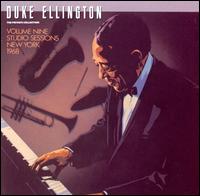
Studio Sessions New York, 1968 is the ninth volume of The Private Collection a series documenting recordings made by American pianist, composer and bandleader Duke Ellington for his personal collection which was first released on the LMR label in 1987 and later on the Saja label.
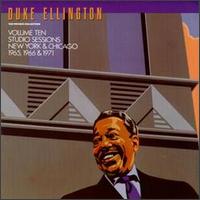
Studio Sessions New York & Chicago, 1965, 1966 & 1971 is the tenth volume of The Private Collection—a series documenting recordings made by American pianist, composer and bandleader Duke Ellington for his personal collection which was first released on the LMR label in 1987 and later on the Saja label.

